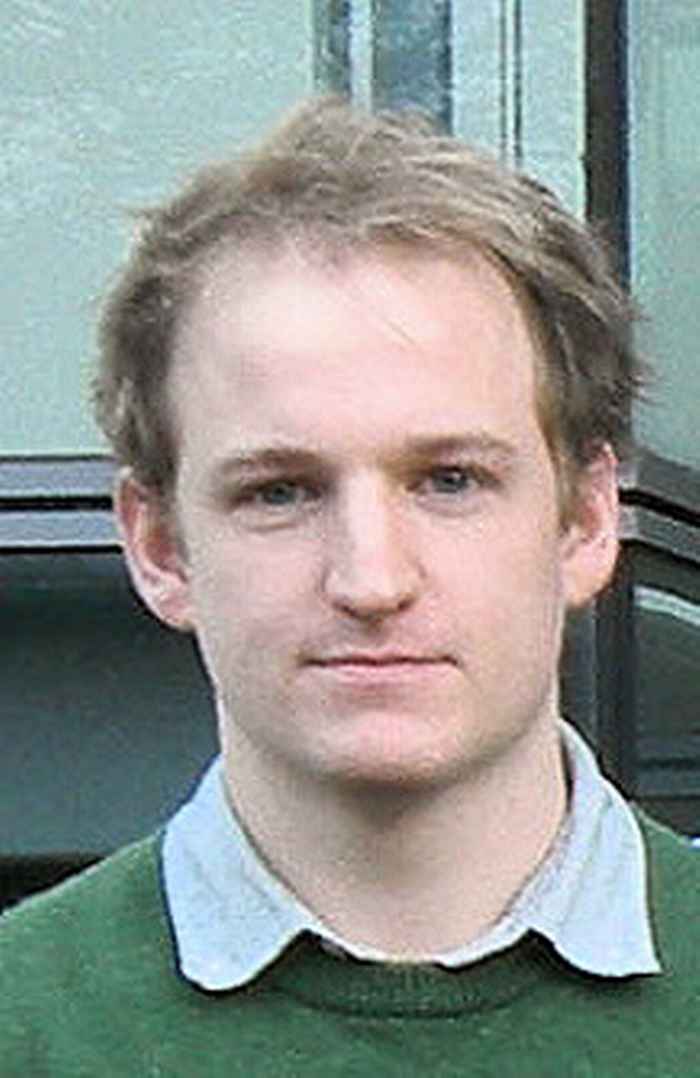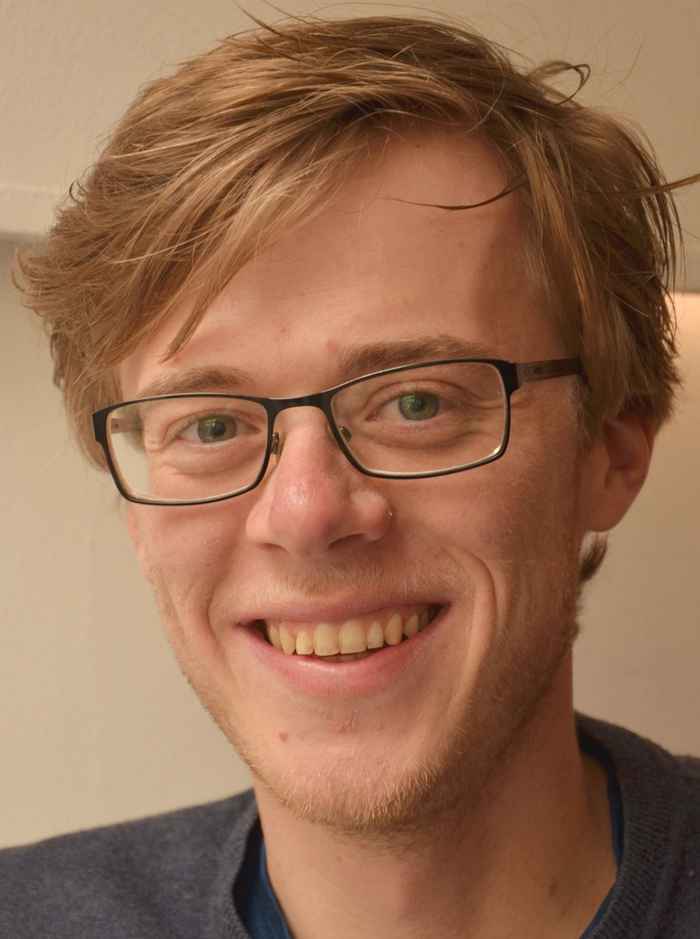Veni grants for Joen Hermans and Andrew Jupp
21 August 2018
Veni grants are part of the Talent Scheme of the Netherlands Organisation for Scientific Research NWO and are aimed at excellent researchers who have recently obtained their doctorate. NWO selects researchers based on the quality of the researcher, the innovative character of the research, the expected scientific impact of the research proposal, and the possibilities for knowledge use. A total of 1,115 researchers applied for funding in this year's Veni round. 154 proposals were awarded a grant.
Nitrogen activation
Dr Andrew Jupp will join the team of associate professor Chris Slootweg at the Synthetic Organic Chemistry research group to perform research into the metal-free activation of dinitrogen.. This will be carried out with a range of highly reactive phenyl cation derivatives to afford diazonium salts that can be utilised in further chemistry, such as in the synthesis of dyes and molecular machines. This research is focused on finding greener and more sustainable methods for accessing a range of useful nitrogen-containing products.

Andrew Jupp studied chemistry at the University of Oxford (UK) where he obtained his PhD under the supervision of Prof. Jose Goicoechea for a study on phosphorus-containing analogues of the cyanate anion and urea. He was awarded the Reaxys PhD Prize in 2015. He subsequently carried out a Banting Postdoctoral Fellowship at the University of Toronto, Canada, under the guidance of Prof. Doug Stephan, to research the properties and reactivity of frustrated Lewis pairs and main-group Lewis acids.
Oil paint degradation
Joen Hermans will study the molecular details of the slow ageing processes in oil paintings, in particular with respect to their exposure to water (whether as environmental humidity or in cleaning solutions). He will recreate the molecular structure of oil paint and apply advanced spectroscopic techniques to investigate how indoor climate and restoration methods can be adapted to optimise paintings conservation. His research will provide crucial information on the influence of water on degradation kinetics, to support museums around the world in the development of improved conservation strategies and optimal indoor climate conditions. Hermans will cooperate closely with HIMS researchers Prof. Sander Woutersen (Molecular Photonics), Dr Katrien Keune (Analytical Chemistry) and Piet Iedema (Computational Polymer Chemistry).

Joen Hermans studied chemistry at Utrecht University, where he graduated cum laude in 2012. He performed his PhD research with Prof. Piet Iedema at the Van 't Hoff Institute for Molecular Sciences into the chemistry of metal soaps in oil paintings. After obtaining his PhD cum laude in 2017, he started working as a postdoctoral researcher at Rijksmuseum and the Netherlands Institute for Conservation, Art and Science (NICAS) on the use of 2D-IR spectroscopy for studying the ageing of oil paint.